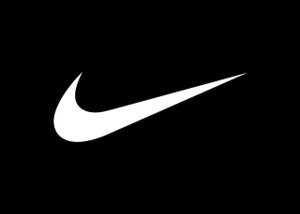9/11/2018

Sportswear company Nike has received both praise and condemnation for its decision to make former NFL quarterback and racial justice advocate Colin Kaepernick the face of its 30th anniversary "Just Do It" campaign.
Many astute commentators have already noted that Nike, as a giant, publicly traded corporation, is laser-focused on making profits and maximizing value for its shareholders. From making political donations to Republicans and Democrats in roughly equal amounts to simultaneously sponsoring both Kaepernick and the league that has allegedly colluded to keep him off the field, Nike has shown that it is an equal opportunity offender--spreading its bets around for the higher purpose of making money for company owners.
One of the narratives being pushed in the now-politicized world of business is that companies must take a side on contentious issues. Doing so cements their reputations as either "good" or "bad" to many consumers, depending on their perspectives; they may then support or boycott products accordingly.
So, is Nike good or bad? Conservatives can find much to dislike about the company's recent decision to give Kaepernick a more high-profile role in its ad campaign. Liberals can find fault with Nike's failure to live up to internationally recognized labor standards for its suppliers.
The answer is that Nike isn't inherently good or bad. It's a company. And as a company, it can be party to things that society deems both good and bad. It's up to us as owners and interested stakeholders to make our opinions known.
The most effective way to do that isn't by burning our shoes or going out to buy a new pair and then posting everything on Instagram. It's by using the shareholder proposal process available to stockholders.
For all its perceived flaws, the public American corporation is still a quasi-democratic institution, with shareholders and a board of directors charged with voting and deciding how to manage company affairs. That governance means that the corporation is flexible enough to respond to stakeholder concerns, especially when they relate to risk management and long-term sustainability.
The shareholder proposal process--where a person or organization that owns stock in that company can submit a resolution on a business matter to be voted on a company's annual meeting--endows the American corporation with the capability to serve its shareholders profitably and with principle.
It's how corporate management stays accountable to owners and how owners are able to shape a company they can be proud to invest in. About 80% of the shares in publicly traded companies are directly and indirectly owned by individuals. Some studies show, however, that more than 50% of all small shareholder votes are never submitted.
Rather than buying or boycotting shoes to make a statement, consider examining your proxy voting materials the next time your broker sends them your way. Better yet, file a resolution of your own on a matter that means something to you as a stakeholder. Or ask your financial advisor to do it for you.
The shareholder resolutions process is a way to reinforce the backbone of American corporate governance and to help companies respect the will of their owners. It's a positive response to the cynicism that is gaining ground in our national discourse. Plus, it's not that hard.
Just do it. You'll be glad you did.
The opinions and views expressed herein are current as of the date indicated, are subject to change without notice, and do not take into account particular investment objectives, financial situation or the needs of individual investors. They are not intended to be relied upon as a prediction or forecast of actual future events or performance, guarantee of future results, recommendations or advice. Statements made in this material are not intended as buy or sell recommendations of any securities. Forward-looking statements are subject to uncertainties that could cause actual developments and results to differ materially from the expectations expressed. This information has been prepared from sources believed reliable, but the accuracy and completeness of the information cannot be guaranteed.
Joshua Brockwell is Investment Communications Director at Azzad Asset Management, a socially responsible registered investment advisor located in Falls Church, Virginia.
